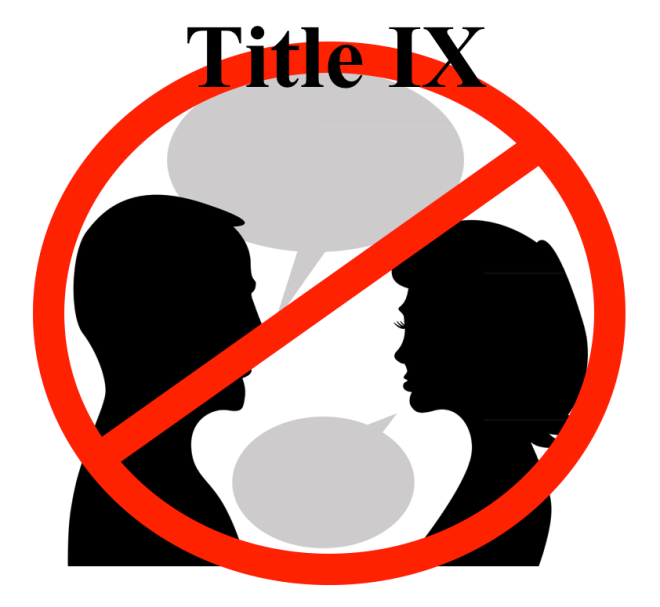Robert Higgs • Wednesday, March 16, 2016 •
 For anyone familiar with F. A. Hayek’s famous 1944 book, The Road to Serfdom, the present electoral campaigning to gain the Democratic and Republican nominations as the party’s presidential candidate cannot help but call to mind Hayek’s chapter, “Why the Worst Get on Top.” As matters now stand, the most likely candidates will be, for the Democrats, Hillary Clinton, perhaps the most hated woman on earth; and for the Republicans, either Donald Trump, a bombastic, vulgar ignoramus whose knowledge of basic economic principles seems stuck in the negative range, or Ted Cruz, a politico so universally disliked on a personal level that, it is rumored, even the members of his own family despise him. Whatever one’s agreement with the foregoing appraisals, no one can deny that each of these individuals elicits great repulsion from tens of millions of eligible voters. Is this state of affairs a peculiarity of this electoral season or is it the kind of situation one might well expect to arise in the generally prevailing circumstances of political life?
For anyone familiar with F. A. Hayek’s famous 1944 book, The Road to Serfdom, the present electoral campaigning to gain the Democratic and Republican nominations as the party’s presidential candidate cannot help but call to mind Hayek’s chapter, “Why the Worst Get on Top.” As matters now stand, the most likely candidates will be, for the Democrats, Hillary Clinton, perhaps the most hated woman on earth; and for the Republicans, either Donald Trump, a bombastic, vulgar ignoramus whose knowledge of basic economic principles seems stuck in the negative range, or Ted Cruz, a politico so universally disliked on a personal level that, it is rumored, even the members of his own family despise him. Whatever one’s agreement with the foregoing appraisals, no one can deny that each of these individuals elicits great repulsion from tens of millions of eligible voters. Is this state of affairs a peculiarity of this electoral season or is it the kind of situation one might well expect to arise in the generally prevailing circumstances of political life?
My view is that the latter is the case. The rise of reprehensible individuals to the top of the political heap is precisely what anyone with a realistic view of history and a bit of education in public choice theory would expect.
Consider first that politics is a competitive endeavor. In this realm, office seekers and program promoters strive to gain their objectives, each at the expense of others similarly striving to promote themselves, their programs, and their other governmental aims. What sort of person is most likely to succeed in this competition?
John R. Graham • Wednesday, March 16, 2016 •
 Soon after Associate Justice Antonin Scalia passed away on February 13, Senate Republicans felt the need to declare that they would not even entertain the thought of holding confirmation hearings for any candidate President Obama might nominate to the Supreme Court in the last eleven months of his second term.
Soon after Associate Justice Antonin Scalia passed away on February 13, Senate Republicans felt the need to declare that they would not even entertain the thought of holding confirmation hearings for any candidate President Obama might nominate to the Supreme Court in the last eleven months of his second term.
Given the high drama and politics surrounding presidential appointments that require Senate confirmation, it might be a good time to ask why another 15-member “court,” which President Obama himself established in 2010, and which was supposed to deliver its first decision in January 2014, has not yet seen its first member nominated!
This “court” is the almost forgotten “death panel,” officially named the Independent Payment Advisory Board (IPAB). Based on a target rate of Medicare spending per capita, the IPAB was supposed to start cutting Medicare payments to providers in 2015.
Through 2017, the target rate is the average of the change in the Consumer Price Index and the medical-care component of the CPI. For 2018 and subsequent years, the target rate is the rate of change in nominal Gross Domestic Product per capita plus one percent. The IPAB would cut spending by the lesser of the excess or a percentage increasing from 0.1 percent in 2015 to 1.5 percent in 2017 and subsequent years.
Gary Galles • Monday, March 14, 2016 •
 Donald Trump promises to “Make America Great Again.” Unfortunately, his “us versus them” view of economic exchanges, prominent in his “America doesn’t win anymore” rant, would fail introductory economics. And his protectionist promises cannot make us great again, only less great and poorer.
Donald Trump promises to “Make America Great Again.” Unfortunately, his “us versus them” view of economic exchanges, prominent in his “America doesn’t win anymore” rant, would fail introductory economics. And his protectionist promises cannot make us great again, only less great and poorer.
Trump’s protectionism rehashes a bogus patriotism argument. Imports are pilloried as harming American industry, creating an excuse for “we must defend America” protectionist policies. Since imports always harm American producers of competing products by reducing demand for their output, those wanting protection for themselves find that convincing, as do many who overlook the logical cheat.
The conflict is framed as one between foreign producers and American producers, where patriotism should lead us to favor American producers. If that were accurate, and we cared more about “our” producers, we would give them preference, other things equal. But this is a massive misrepresentation. Protectionism is actually a conspiracy between American producers and the American government to rip off American consumers and foreign suppliers.
Depicting protectionism as domestic producers versus foreign producers ignores the central issue—when do American consumers buy from foreign producers? When they offer a better price and quality deal. Consequently, when trade restrictions take away those superior options, they make American consumers poorer. And patriotism does not imply our government should help American producers beggar American consumers.
Jonathan Bean • Sunday, March 13, 2016 •
TOPIC: What is consent? This is a topic that comes up consistently in the course I teach on classic liberal thought. A class discussion of “consent”—and what that means—reminded me of this rap video and the followup research reported by the Foundation for Economic Education (FEE).
Back in 2006, Congress passed a “green” law to save energy by replacing the warm light of the incandescent bulb with alternative bulbs (not so friendly to the eyes or the pocketbook). Here is a rap video lamenting the passing of the incandescent light bulb. Did Americans truly “consent” to the elimination of this light bulb? Almost no one knew their lawmakers passed this law. Moreover, the expensive, ugly-lit light bulbs regulators wanted Americans to buy were on sale for years. The problem was consumers—day after day, purchase after purchase—refused to consent to pay many times over for inferior light. Isn’t that a form of “consent” more responsive to the issue at hand than the passage of a law no one knew about?
John R. Graham • Friday, March 11, 2016 •
 Republican and Democratic politicians accuse each other of plotting to destroy “Medicare as we know it” when campaigning against each other, but they collaborate enthusiastically to do exactly that when they get to work on Capitol Hill.
Republican and Democratic politicians accuse each other of plotting to destroy “Medicare as we know it” when campaigning against each other, but they collaborate enthusiastically to do exactly that when they get to work on Capitol Hill.
For better or worse, Exhibit A is last week’s announcement by the Centers for Medicare & Medicaid Services (CMS) that it had beaten its target of tying 30 percent of Medicare Part A and B payments to “quality of care rather than quantity of services.” That goal was initially set for the end of 2016, but was actually achieved in January.
Initially, this was a goal set only by administrative fiat, in January 2015. However, it soon picked up bipartisan legislative support in the so-called “doc fix” bill of April 2015.
Mary L. G. Theroux • Friday, March 11, 2016 •
Donald Trump’s base is widely characterized as “low-information voters.” As he continues to rack up primary wins, does this indicate that the majority of voters is now low-information?
Meanwhile, a recent poll by the Harvard Institute of Politics of 18- to 29-year olds finds two-thirds of them neutral to Sanders’ self-identification as a socialist, while a McClatchy-Marist poll shows 25% of millennials saying they would “definitely vote for” any socialist presidential candidate:
“As a millennial, I believe that we identify with what Bernie Sanders has to offer because we’ve had so much taken away from us.”
In 1979, the nation’s public schools were put under the control of the newly created Department of Education. In our forthcoming book, Failure: The Federal Misedukation of America’s Children, Vicki Alger traces the genesis of the department’s creation, and its numerous attempts to remake itself since, concluding it has—by its own stated goals—failed.
Rebeca Zuñiga • Thursday, March 10, 2016 •
Yesterday my heart sank when a former colleague sent me a note saying, “The greatest man is gone… Giancarlo passed away.”
This “greatest man” was Giancarlo Ibárgüen S., the former president of Universidad Francisco Marroquin (UFM) in Guatemala, who lost his seven-year struggle with ALS at the age of 53.
Giancarlo was my boss from 2003 to 2013, when I was director of the school’s New Media Department. More importantly, he was my teacher and mentor, a role model and a true hero of freedom. He introduced me to the teachings of the free-market, and by his example, he showed me how to live a life consistent with our shared principles and moral values.
Carrying the Torch of Liberty into the Digital Age
Giancarlo took his first steps on the path to understanding free-market ideas while he was still in high school. He had met UFM’s founder, the late Manuel F. Ayau, and would visit the university to audit classes. Many years later, he joined its board of directors, became a trustee, and took the role of general secretary (provost). In 2003, his influence on the university became even stronger when he became UFM’s president.
Samuel R. Staley • Thursday, March 10, 2016 •

College sexual assault gains a higher national profile, and colleges and universities are bringing their sexual assault and harassment policies in line with guidelines issued by U.S. Department of Education Title IX. For campus sexual assault (the topic of my forthcoming book, Unsafe On Any Campus? College Sexual Assault and What We Can Do About It, due out in July 2016), Title IX may actually lengthen and deepen the trauma experienced by victims and further hamper efforts to gather reliable data. The irony is as epic as it is tragic.
The most problematic part of DOE’s Title IX policy as a faculty member (at Florida State University) and someone actively invested in trying to reduce sexual on campuses is confidentiality. Title IX sexual assault policies require all Responsible Employees to report any incident they believe is sexual assault or harassment. Responsible Employees are, in effect, all faculty and staff except those directly tied to a college’s designated counseling center, health clinic, or victim advocate program (including the Title IX office). This triggers the opening of a case file and an investigation by the Title IX officer to determine whether the university or college should take action. Responsible Parties are required to identify the victim, the circumstances of the incident, and the assailants to the office and provide contact information.
On its face, this doesn’t sound like a bad idea: One of the biggest issues universities and colleges face is getting a handle on the number, frequency and character of assaults or harassment incidents so they can design remedies (also mandated by Title IX). The accuracy of the data is suspect, and it’s perceived unreliability has helped polarize positions on the policy importance of sexual assault. In theory, by requiring reporting from faculty and staff, the university will be able to gather more and better data.
John R. Graham • Wednesday, March 9, 2016 •
 Donald Trump does not want Chinese goods or Mexican workers to come into America. However, there appears to be one set of items he wants to cross our border, according to his Healthcare Plan to Make America Great Again:
Donald Trump does not want Chinese goods or Mexican workers to come into America. However, there appears to be one set of items he wants to cross our border, according to his Healthcare Plan to Make America Great Again:
Remove barriers to entry into free markets for drug providers that offer safe, reliable and cheaper products. Congress will need the courage to step away from the special interests and do what is right for America. Though the pharmaceutical industry is in the private sector, drug companies provide a public service. Allowing consumers access to imported, safe and dependable drugs from overseas will bring more options to consumers.
A more wrong-headed notion of free trade would be hard to imagine. One thing he is right about is that the pharmaceutical industry comprises a “special interest.” And it is a “special interest” of which politicians like Hillary Clinton feed quite well.
The Donald is above all that – self-funding his political career, in case you had not heard. He may not be as interested in shaking down the pharmaceutical industry as Hillary Clinton is, but his prescription drug proposal is just as bad as hers.
First, free trade requires willing buyers and sellers. Brand-name pharmaceutical companies are not willing to sell their products in the United States at the same prices they sell in foreign countries. Those prices are too low to sustain their business models. Foreign drug companies, like GlaxoSmithKline or AstraZeneca, are free to sell their medicines in the U.S. And they do so at higher prices than in their home countries.
Abigail R. Hall • Tuesday, March 8, 2016 •
 The deaths of Eric Garner, Freddie Gray, and Michael Brown over the past two years have sparked national protests. At front and center of these demonstrations was the issue of police militarization, the fact that modern-day police officers often look more like an occupying military force than “keepers of the peace.”
The deaths of Eric Garner, Freddie Gray, and Michael Brown over the past two years have sparked national protests. At front and center of these demonstrations was the issue of police militarization, the fact that modern-day police officers often look more like an occupying military force than “keepers of the peace.”
In addition to this issue, however, the deaths of these black men shed light on another important matter. That is, minorities are far more likely to have a negative experience with police than their white counterparts.
In a forthcoming paper, my coauthor Chris Coyne and I discuss this very issue, and provide an argument as to why racial minorities are more likely to bear the cost of police militarization.
Indeed, racial minorities are more likely to die while in police custody. According to data from the Bureau of Justice Statistics, blacks are about four times as likely to die in police custody than whites. Data from the CDC found that between 1968 and 2011, blacks were anywhere from two to eight times more likely than whites to be killed by police.
Just as racial minorities are more likely to be killed while in police custody, they are also more likely to be involved in SWAT operations (on the receiving end, that is). According to the ACLU, SWAT raids primarily impact persons of color. Between 2011 and 2012, approximately 50 percent of all SWAT raids were conducted against black or Hispanic individuals while only 20 percent of raids involved white suspects.
 For anyone familiar with F. A. Hayek’s famous 1944 book, The Road to Serfdom, the present electoral campaigning to gain the Democratic and Republican nominations as the party’s presidential candidate cannot help but call to mind Hayek’s chapter, “Why the Worst Get on Top.” As matters now stand, the most likely candidates will be, for the Democrats, Hillary Clinton, perhaps the most hated woman on earth; and for the Republicans, either Donald Trump, a bombastic, vulgar ignoramus whose knowledge of basic economic principles seems stuck in the negative range, or Ted Cruz, a politico so universally disliked on a personal level that, it is rumored, even the members of his own family despise him. Whatever one’s agreement with the foregoing appraisals, no one can deny that each of these individuals elicits great repulsion from tens of millions of eligible voters. Is this state of affairs a peculiarity of this electoral season or is it the kind of situation one might well expect to arise in the generally prevailing circumstances of political life?
For anyone familiar with F. A. Hayek’s famous 1944 book, The Road to Serfdom, the present electoral campaigning to gain the Democratic and Republican nominations as the party’s presidential candidate cannot help but call to mind Hayek’s chapter, “Why the Worst Get on Top.” As matters now stand, the most likely candidates will be, for the Democrats, Hillary Clinton, perhaps the most hated woman on earth; and for the Republicans, either Donald Trump, a bombastic, vulgar ignoramus whose knowledge of basic economic principles seems stuck in the negative range, or Ted Cruz, a politico so universally disliked on a personal level that, it is rumored, even the members of his own family despise him. Whatever one’s agreement with the foregoing appraisals, no one can deny that each of these individuals elicits great repulsion from tens of millions of eligible voters. Is this state of affairs a peculiarity of this electoral season or is it the kind of situation one might well expect to arise in the generally prevailing circumstances of political life? Soon after Associate Justice Antonin Scalia passed away on February 13, Senate Republicans felt the need to declare that they would not even entertain the thought of
Soon after Associate Justice Antonin Scalia passed away on February 13, Senate Republicans felt the need to declare that they would not even entertain the thought of  Donald Trump promises to “Make America Great Again.” Unfortunately, his “us versus them” view of economic exchanges, prominent in his “America doesn’t win anymore” rant, would fail introductory economics. And his protectionist promises cannot make us great again, only less great and poorer.
Donald Trump promises to “Make America Great Again.” Unfortunately, his “us versus them” view of economic exchanges, prominent in his “America doesn’t win anymore” rant, would fail introductory economics. And his protectionist promises cannot make us great again, only less great and poorer. Republican and Democratic politicians accuse each other of plotting to destroy “Medicare as we know it” when campaigning against each other, but they collaborate enthusiastically to do exactly that when they get to work on Capitol Hill.
Republican and Democratic politicians accuse each other of plotting to destroy “Medicare as we know it” when campaigning against each other, but they collaborate enthusiastically to do exactly that when they get to work on Capitol Hill.
 Donald Trump does not want Chinese goods or Mexican workers to come into America. However, there appears to be one set of items he wants to cross our border, according to his
Donald Trump does not want Chinese goods or Mexican workers to come into America. However, there appears to be one set of items he wants to cross our border, according to his  The deaths of Eric Garner, Freddie Gray, and Michael Brown over the past two years have sparked national protests. At front and center of these demonstrations was the issue of police militarization, the fact that modern-day police officers often look more like an occupying military force than “keepers of the peace.”
The deaths of Eric Garner, Freddie Gray, and Michael Brown over the past two years have sparked national protests. At front and center of these demonstrations was the issue of police militarization, the fact that modern-day police officers often look more like an occupying military force than “keepers of the peace.”




